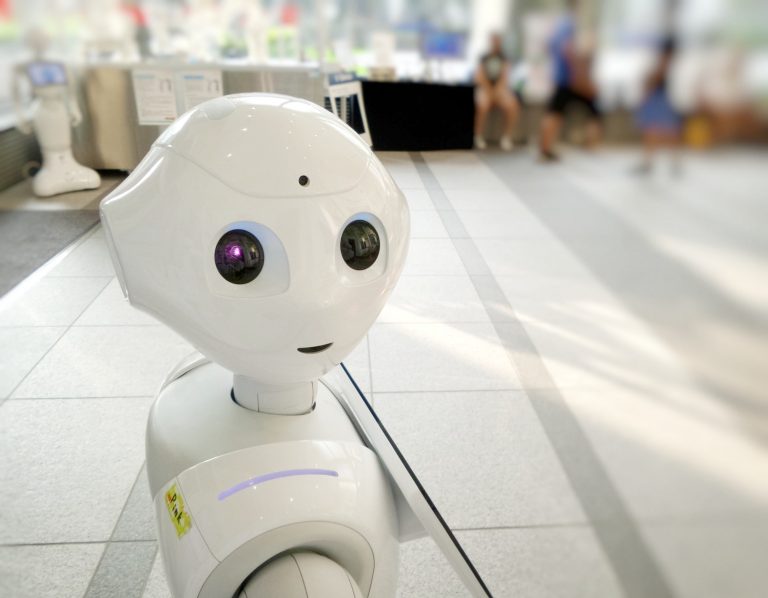The hospitality industry and restaurants have increasingly turned to Artificial Intelligence (AI) to streamline operations, enhance customer experiences, and optimize revenue.
However, on the surface, it doesn’t seem like the hospitality industry and AI could ever work together. In hospitality, the aim is to create a warming environment where people can talk to people, and ensure human interaction. So how is AI revolutionizing the hospitality sector?
Story Stages
Expert Opinion
After speaking to Jarrad Grigg, the Head of Product at MenuZen.com, we were given a peak behind the curtain.
He shared “AI doesn’t just mean chatbots. It also means predicting customer needs, simplifying customer requirements, and creating a smooth experience.
Some hotels and restaurants are serving their customers with robot assistance, but many more are calculating what their customers will enjoy by using simple AI algorithm patterns.
This helps the business serve their customers faster and allow more time for human interaction.”
So what does this mean in real terms? We’ve done some research to help explain this concept further.
Voice-Activated Services
AI voice assistants can take orders, make reservations, and handle customer inquiries – freeing up staff for other tasks.
Tech companies such as Amazon are creating Alexa-style communication bots, which can be placed in a hotel room and collect requests that would normally require a phone call to the front desk. Once collected, the staff can add the request to their job list and complete them as they go.
Need an extra towel? So does room 5! With this technology, workers can complete their jobs more efficiently.
Smart Kitchens
AI-powered equipment helps chefs and staff manage inventory, reduce food waste, and improve food safety by monitoring storage temperatures and expiration dates.
The AI can change the temperature based on plate type or outdoor weather conditions. They can also set reminders about food that will soon expire and tell the management team to buy more ingredients before the chef realizes they are low.
This can reduce costs and prevent out-of-stock menus, allowing customers to purchase their favorite meal every day!
Robotic Assistance
Robots can be employed to deliver food and drinks, clean tables, or even prepare simple dishes, reducing wait times and improving efficiency.
Robots this advanced will not be around any time soon, however, they will help remove the boring jobs which are necessary in all hospitality venues.
Enhanced Staff Training
AI tools can help train staff more effectively, utilizing virtual reality and gamification techniques to improve their skills.
Depending on the type of training your staff needs, this type of system can show how unhappy customers should be dealt with, how fires can start, and how busy days can affect productivity.
Through this training, your staff will be prepared for the hardest part of their job.
Chatbots
AI-powered chatbots can answer common questions, assist with reservations, and provide real-time customer support. These bots are already used by the most successful hospitality brands, but when the customer has a unique question or has a problem that cannot be solved easily, they are sent to a real person.
This allows the receptionist to focus on unique problems rather than answer simple questions constantly. It will also reduce waiting times on phone calls.
Dynamic Pricing
AI algorithms can analyze demand patterns, adjusting menu prices to optimize revenue and attract customers during off-peak hours. It does this by watching how competitors are pricing their items and then changing the business’s pricing to seem more attractive.
This method is already used in shops such as Amazon. The prices change based on how many people are buying the items and how many others are selling them.
Dynamic Attractions
AI algorithms can use the same concept shown above to understand what their clients are interested in. For example, if they book tickets to a hotel around the time of a famous musician’s concert, the customer could receive advertising in their room for local events which match the aesthetic of the band.
Seeing Ed Sheeran? Check out this local indie cafe which showcases up-and-coming artists.
Watching a football game? Try out this adventure park where you compete with your friends.
This can help promote local attractions while tailoring adverts based on already understood information.
Final Thoughts
Some of these concepts are already underway. Chatbots, dynamic pricing, and voice-activated services are already established AI tools in the hospitality industry. However, we can expect technology to develop quickly in this area, as we find more ways to attract customers and simplify workstreams.
